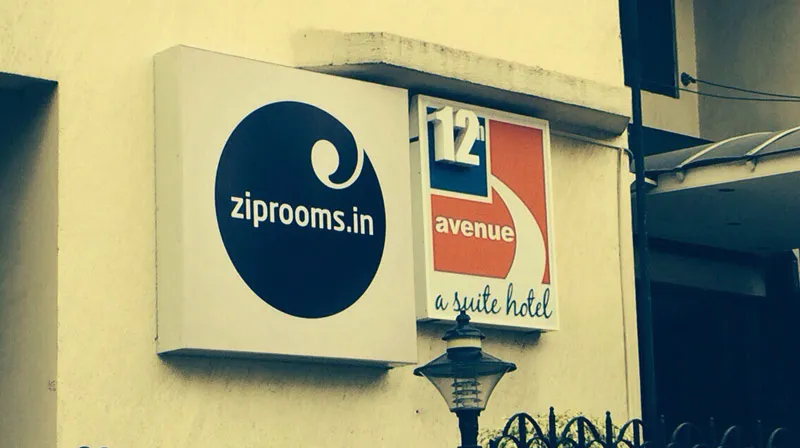Ready to challenge top budget hotel aggregators in India, Zip Rooms is riding on its decades of legacy in hospitality
‘Pocket friendly yet modern’ is the new mantra for budget travelers across the world. Today’s budget tourist is young and tech savvy and has the right tools on his mobile to find the best deal for smart travel. When Keshav Baljee, co-promoter of the Royal Orchid Group of Hotels and CEO of Spree Hotels, observed this rising trend and noticed a gap in the budget hotel aggregation market, he knew what he wanted to do next.

“Being a techie myself, I have always loved to club technology with hospitality solutions. With Royal Orchid and Spree we have been addressing the high and mid-market hotel segment but we wanted to close the loop by entering the budget segment as well,” says Baljee. He realized that the best strategy to scale fast in this business is to be asset light and cash-in on his business legacy of managing hotels.
Equal partners
His brainchild, Zip Rooms, is a budget hotel aggregator that offers co-branded hotels across the country on its platform equipped with basic amenities that a budget, leisure, or business traveler would wish for.
Zip Rooms identifies local non-branded budget hotels in a city and then works on the rule of create-standardize-aggregate. Their team audits the property to check for basic qualification criteria that relates to infrastructure and the hotel service standards. “Understanding the values and attitude of the hotel owner is also very important. We want partners who are enthusiastic about progress and find benefit in our mutual partnership,” explains Baljee.
He adds that their history in identifying the right business partners would prove to be the key differentiator in the long term. After identifying potential standalone hotel properties, Zip Rooms starts the process of standardizing the services to bring them up to their brand standards. As their target customers are young budget travelers, basic amenities like clean rooms, clean linen, Wi-Fi, hot shower, air-conditioning and breakfast are a must. “We invest a lot of time in training and monitoring of the hotel staff and management. The idea is not to interfere in their day to day operations but help them make their business profitable and sustainable. In the long run we do not want to be a partner that only helps sell rooms, we want to support our hotels in developing holistic ways of generating revenues and better manage costs,” explains Baljee.
However, he agrees that continuous monitoring is not an easy job and they are figuring out more effective ways of doing it as they scale. Zip Rooms is also developing a tech platform to make bookings easier, standardize hotel services, and audit the properties in a faster and efficient manner.

Building on legacy
Baljee is a Wharton School, UPenn, and ISB, Hyderabad, graduate who worked in the banking sector in USA. “When I was in college I never thought that I would get into hospitality. I always wanted to become a VC,” he says, and laughs. It was his stint with the Royal Orchid group during their IPO that got Baljee interested in the business that his father had mastered over decades. “I have grown up in a hotel as a child, and being a part of a family that has run hotels for ages, I have observed the business very closely.”
Baljee wanted to create something on his own and thus began his journey in the industry. On being asked about how easy or tough the road to entrepreneurship was for him, Baljee explains, “Being born in a business family has its own pros and cons. The advantage is that you have seen the good and bad times of entrepreneurship and your financial needs to start your own venture are met. The cons are that the social and family expectations from you are very high. You will always be compared with the family legacy, and judged on your performance. That being said, as an individual I have always put a lot of pressure on myself to do well in my career; hence it wasn’t unnatural for me to stand and fight the battle,” says Baljee with a smile.
Room for more
Zip Rooms was conceptualized a year and half ago and is now 70 days old into its operations. They are already present in 11 cities and aim to tie up with 300 to 400 hotels in the next 12 months. Currently, they are leveraging the team of Spree hotels, which is 200 people strong, and are in the process of making organizational changes and assigning teams for Zip. Zip Rooms has already looked at 25,000 hotels to check potential partners, and claims that there are 11 lakh hotel and hotel-like properties in India that can be looked at in the budget hotel segment.

In the last few months we have read growth and funding stories of similar platforms like OYO, Zostel, Treebo and Zo Rooms. There are many more startups which are mushrooming in this space to woo domestic and international budget travelers. However, managing the expectations of Indian customers from branded budget hotels will be a challenge as they are still getting used to the low-cost service offering, unlike their international counterparts.
Consistency in service delivery, long term profitability, and building strong bonds with hotel partners are some of the key challenges startups in the budget aggregation industry face. However, the concept in itself is bound to bring a spike in sale of non-branded hotels which can be equally clean and safe as their branded counterparts.
As the business will not allow the aggregators to have overlapping hotels in their network, it wouldn’t be surprising to see a race between companies like OYO and Zip Rooms to get dibs on properties. With their legacy in hospitality and the zeal to help their hotel partners grow hand-in-hand, Zip Rooms is bound to offer tough competition to its likes in the days to come.











